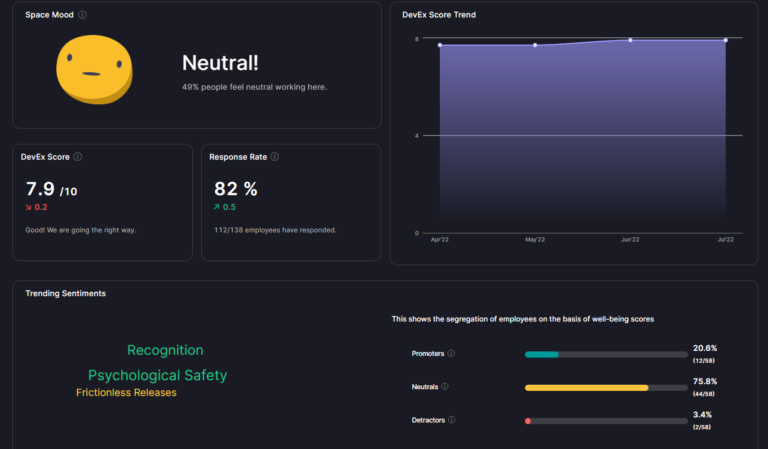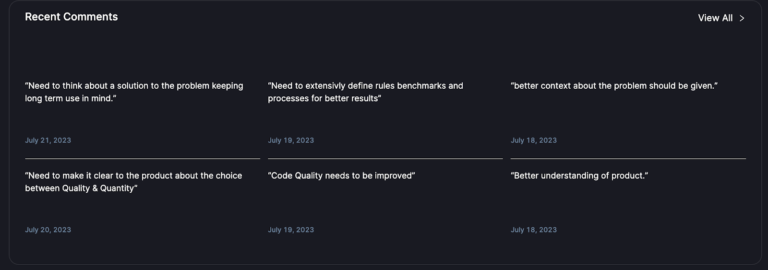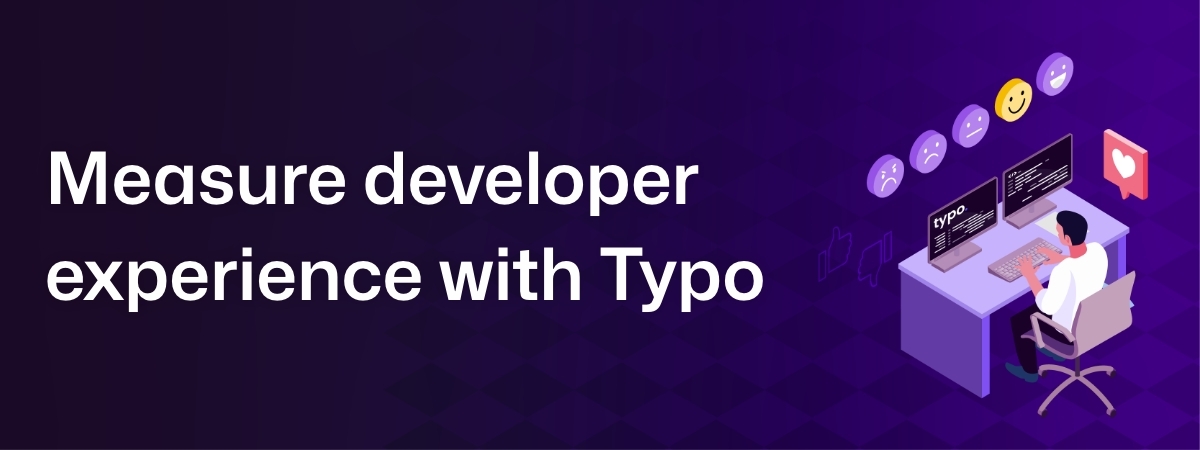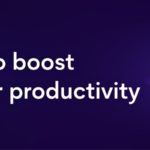A software development team is critical for business performance. They wear multiple hats to complete the work and deliver high-quality software to end-users. On the other hand, organizations need to take care of their well-being and measure developer experience to create a positive workplace for them.
Otherwise, this can negatively impact developers’ productivity and morale which makes their work less efficient and effective. As a result, disrupting the developer experience at the workplace.
With Typo, you can capture qualitative insights and get a 360 view of your developer experience. Let’s delve deeper into it in this blog post:
What is developer experience?
Developer experience refers to the overall experience of developer teams when using tools, platforms, and services to build software applications. This means right from the documentation to coding and deployment and includes tangible and intangible experience.
Happy developers = positive developer experience. It increases their productivity and morale. It further leads to a faster development cycle, developer workflow, methods, and working conditions.
Not taking care of developer experience can make it difficult for businesses to retain and attract top talent.
Why is developer experience beneficial?
Developer experience isn’t just a buzzword. It is a crucial aspect of your team’s productivity and satisfaction.
Below are a few benefits of developer experience:
Smooth onboarding process
Good devex ensures the onboarding process is as simple and smooth as possible. It includes making engineering teams familiar with the tools and culture and giving them the support they need to proceed further in their career. It also allows them to know other developers which can help them in collaboration and mentorship.
Improves product quality
A positive developer experience leads to 3 effective C’s – Collaboration, communication, and coordination. Adhering to coding standards, best practices and automated testing also helps in promoting code quality and consistency and catching and fixing issues early. As a result, they can easily create products that meet customer needs and are free from errors and glitches.
Increases development speed
When developer experience is handled carefully, team members can work more smoothly and meet milestones efficiently. Access to well-defined tools, clear documents, streamlined workflow, and a well-configured development environment are a few of the ways to boost development speed. It lets them minimize the need to switch between different tools and platforms which increases the focus and team productivity.
Attracts and retains top talents
Developers usually look out for a strong tech culture so they can focus on their core skills and get acknowledged for their contributions. A good developer experience results in developer satisfaction and aligns their values and goals with the organization. In return, developers bring the best to the table and want to stay in the organization for the long run.
Enhances collaboration
Great developer experience encourages collaboration and effective communication tools. This fosters teamwork and reduces misunderstandings. Through collaborative approaches, developers can easily discuss issues, share feedback, and work together on tasks.
How to measure developer experience with Typo?
Typo helps with early indicators of their well-being and actionable insights on the areas that need attention through signals from work patterns and continuous AI-driven pulse check-ins on the experience of the developers.
Below is the process that Typo follows to gain insights into developer experience effectively:
Step 1: Pulse surveys
Pulse surveys refer to short, periodic questionaries used to gather feedback from developers to assess their engagement, satisfaction, and overall organizational health.
Typo’s pulse surveys are specifically designed for the software engineering team as it is built on a developer experience framework. It triggers AI-driven pulse surveys where each developer receives a notification periodically with a few conversational questions.
We highly recommend doing surveys once a month as to keep a tab on your team’s wellbeing & experiences and build a continuous loop of feedback. However, you can customize the frequency of these surveys according to the company’s suitability and needs.
And don’t worry, these surveys are anonymous.

Step 2: Developer Experience analytics
Based on the responses to the pulse surveys over time, insights are published on the Typo dashboard. These insights help to analyze how developers feel at the workplace, what needs immediate attention, how many developers are at risk of burnout and much more.
Below are key components of Typo’s developer experience analytics dashboard:
DevEx Score
The DevEx score indicates the overall state of well-being or happiness within an organization. It reflects the collective emotional and mental health of the developers.
Also known as the employee net promoter score, this score ranges between 1 – 10 as shown in the image below. It is based on the developer feedback collected. A high well-being score suggests that people are generally content and satisfied while a low score may indicate areas of concern or areas needing improvement.
Response Rate
It is the percentage of people who responded to the check-in. A higher response rate represents a more reliable dataset for analyzing developer experience metrics and deriving insights.
This is a percentage number along with the delta change. You will also see the exact count to drive this percentage. It also includes the trend graph showing the data from the last 4 weeks.
It also includes trending sentiments that show you the segregation of employees based on the maximum re-occurring sentiments as mentioned by developer team.

Recent comments
This section shows all the concerns raised by developers which you can reply to and drive meaningful conversations. This offers valuable insights into their workflow challenges, addresses issues promptly, and boosts developer satisfaction.

Heatmap
In this section, you can slice and dice your data to deep-dive further on the level of different demographics. The list of demographies is as follows:
- Designation
- Location
- Team
- Tenure
Burnout Alerts
Typo sends automated alerts to your communication to help you identify burnout signs in developers at an early stage. This enables leaders to track developer engagement and support their well-being, maintain productivity, and create a positive and thriving work environment.
Typo tracks the work habits of developers across multiple activities, such as commits, PRs, reviews, comments, tasks, and merges, over a certain period. If these patterns consistently exceed the average of other developers or violate predefined benchmarks, the system identifies them as being in the burnout zone or at risk of burnout. These benchmarks can be customized to meet your specific needs.
Developer experience framework, powered by Typo
Typo’s developer experience framework suggests to engineering leaders what they should focus on for measuring the dev productivity and experience.
Below are the key focus areas and their drivers incorporated in the developer experience framework:
Key focus areas
Manager support
It refers to the level of assistance, guidance, and resources provided by managers or team leads to support developers in their work.
|
Sub focus areas |
Description |
Questions |
|
Empathy |
The ability to understand and relate to developers, actively listen, and show compassion in interactions. |
|
|
Coach and guide |
The role of managers is to provide expertise, advice, and support to help developers improve their skills, overcome challenges, and achieve career goals. |
|
|
Feedback |
The ability to provide timely and constructive feedback on performance, skills, and growth areas helping developers gain insights, refine their skills, and work towards achieving their career objectives. |
|
Developer flow
It is a state of optimal engagement and productivity that developers experience when fully immersed and focused on their work.
Sub focus areas | Description | Questions |
Work-life balance | Maintaining a healthy equilibrium between work responsibilities and personal life promotes well-being, boundaries, and resources for managing workload effectively. |
|
Autonomy | Providing developers with the freedom and independence to make decisions, set goals, and determine their approach and execution of tasks. |
|
Focus time | The dedicated periods of uninterrupted work where developers can deeply concentrate on their tasks without distractions or interruptions. |
|
Goals | Setting clear objectives that provide direction, motivation, and a sense of purpose in developers’ work, enhances their overall experience and productivity. |
|
Product management
The practices involved overseeing a software product’s lifecycle, from ideation to development, launch, and ongoing management.
Sub focus areas | Description | Questions |
Clear requirements | Providing developers with precise and unambiguous specifications, ensuring clarity, reducing ambiguity, and enabling them to meet the expectations of stakeholders and end-users. |
|
Reasonable timelines | Setting achievable and realistic project deadlines, allowing developers ample time to complete tasks without undue pressure or unrealistic expectations. |
|
Collaborative discussions | Fostering open communication among developers, product managers, and stakeholders, enabling constructive discussions to align product strategies, share ideas, and resolve issues. |
|
Development releases
It refers to creating and deploying software solutions or updates, emphasizing collaboration, streamlined workflows, and reliable deployment to enhance the developer experience.
Sub focus areas | Description | Questions |
Tools and technology | Providing developers with the necessary software tools, frameworks, and technologies to facilitate their work in creating and deploying software solutions. |
|
Code review | Evaluating code changes for quality, adherence to standards, and identifying issues to enhance software quality and promote collaboration among developers. |
|
Code health | Involves activities like code refactoring, performance optimization, and enforcing best practices to ensure code quality, maintainability, and efficiency, thereby enhancing the developer experience and software longevity. |
|
Frictional releases | Streamlining software deployment through automation, standardized procedures, and effective coordination, reducing errors and delays for a seamless and efficient process that enhances the developer experience. |
|
Culture and values
It includes shared beliefs, norms, and principles that shape a positive work environment. It includes collaboration, open communication, respect, innovation, diversity, and inclusion, fostering creativity, productivity, and satisfaction among developers.
Sub focus areas | Description | Questions |
Psychological safety | Creating an environment where developers feel safe to express their opinions, take risks, and share their ideas without fear of judgment or negative consequences. |
|
Recognition | Acknowledging and appreciating developers’ contributions and achievements through meaningful recognition, fostering a positive and motivating environment that boosts morale and engagement. |
|
Team collaboration | Fostering open communication, trust, and knowledge sharing among developers, enabling seamless collaboration, and idea exchange, and leveraging strengths to achieve common goals. |
|
Learning and growth | Continuous learning and professional development, offering skill-enhancing opportunities, encouraging a growth mindset, fostering curiosity and innovation, and supporting career progression. |
|
Conclusion
Measuring developer experience continuously is crucial in today’s times. It helps to provide real-time feedback on workflow efficiency, early signs of burnout, and overall satisfaction levels. This further identifies areas for improvement and fosters a more productive and enjoyable work environment for developers.
To learn more about DevEx, visit our website!





